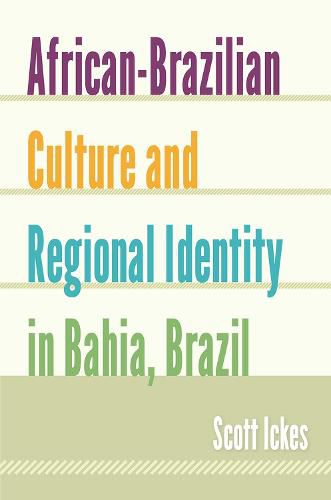Readings Newsletter
Become a Readings Member to make your shopping experience even easier.
Sign in or sign up for free!
You’re not far away from qualifying for FREE standard shipping within Australia
You’ve qualified for FREE standard shipping within Australia
The cart is loading…






This title is printed to order. This book may have been self-published. If so, we cannot guarantee the quality of the content. In the main most books will have gone through the editing process however some may not. We therefore suggest that you be aware of this before ordering this book. If in doubt check either the author or publisher’s details as we are unable to accept any returns unless they are faulty. Please contact us if you have any questions.
Salvador, the capital of the state of Bahia, is often referred to as Brazil’s Black Rome . Culturally complex, vibrant, and rich with history, its African-descended population is one of the largest in Latin America. Yet despite representing a majority of the population, African-Bahians remain a marginalized racial group within the state as a whole.
In African-Brazilian Culture and Regional Identity in Bahia, Brazil, Scott Ickes examines how in the middle of the twentieth century, African-Bahian cultural practices such as capoeira, samba, and Candomble during carnival and other popular religious festivals came to be accepted as essential components of Bahian regional identity. Previously, public performances of traditionally African-Bahian practices were repressed in favor of more European traditions and a more modern vision.
Newfound acceptance of these customs was a democratic move forward, but it also perpetuated the political and economic marginalization of the black majority. Ickes argues that cultural-political alliances between African-Bahian cultural practitioners and their dominant-class allies nevertheless helped to create a meaningful framework through which African-Bahian inclusion could be negotiated a framework that is also important in the larger discussions of race and regional and national identity throughout Brazil.
$9.00 standard shipping within Australia
FREE standard shipping within Australia for orders over $100.00
Express & International shipping calculated at checkout
This title is printed to order. This book may have been self-published. If so, we cannot guarantee the quality of the content. In the main most books will have gone through the editing process however some may not. We therefore suggest that you be aware of this before ordering this book. If in doubt check either the author or publisher’s details as we are unable to accept any returns unless they are faulty. Please contact us if you have any questions.
Salvador, the capital of the state of Bahia, is often referred to as Brazil’s Black Rome . Culturally complex, vibrant, and rich with history, its African-descended population is one of the largest in Latin America. Yet despite representing a majority of the population, African-Bahians remain a marginalized racial group within the state as a whole.
In African-Brazilian Culture and Regional Identity in Bahia, Brazil, Scott Ickes examines how in the middle of the twentieth century, African-Bahian cultural practices such as capoeira, samba, and Candomble during carnival and other popular religious festivals came to be accepted as essential components of Bahian regional identity. Previously, public performances of traditionally African-Bahian practices were repressed in favor of more European traditions and a more modern vision.
Newfound acceptance of these customs was a democratic move forward, but it also perpetuated the political and economic marginalization of the black majority. Ickes argues that cultural-political alliances between African-Bahian cultural practitioners and their dominant-class allies nevertheless helped to create a meaningful framework through which African-Bahian inclusion could be negotiated a framework that is also important in the larger discussions of race and regional and national identity throughout Brazil.